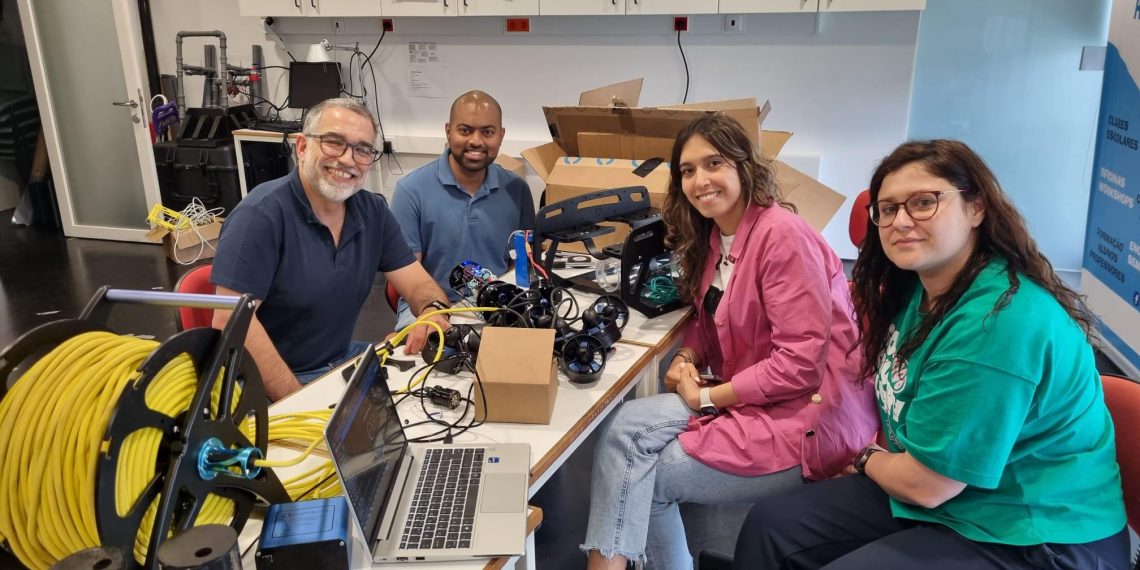The AI4Ports project is underway, aiming to automate the detection of irregularities in underwater infrastructures at ports in the Azores – using Artificial Intelligence (AI).
Over the next 12 months, INESC TEC, the Fundação Gaspar Frutuoso, Portos dos Açores, and Trisolaris will collaborate on developing new solutions for the automatic identification of anomalies in underwater infrastructures; the initiative seeks to improve the safety, efficiency, and sustainability of port operations.
To achieve these goals, AI4Ports will use marine robots (ROVs) equipped with optical and sonar sensors to capture images and data from said structures, e.g., pillars and walls. This data will be used to build a database for training machine learning models, designed to assist in the automatic detection of cracks, fissures, and corrosion holes – not only identifying these anomalies but also assessing their severity.
INESC TEC will lead the image processing of vision and sonar data and adapt the robots to integrate the necessary sensors in line with the project’s objectives. This work is being carried out by INESC TEC researchers Alexandra Nunes and Rita Gaspar, building on their recent PhD research into perceptive navigation and object recognition in underwater environments. “This project will allow us to merge both fields through the development of a hybrid active perception method, enabling advances in the automatic detection and marking of anomalies during port infrastructures inspections,” the researchers explained.
Nuno Cruz, also a researcher at INESC TEC and coordinator of the centre’s robotics and autonomous systems area, stated that the project features “training sessions for local teams to equip staff from Portos dos Açores with the skills to operate and maintain said systems.”
Currently, underwater inspection tasks at ports in the Azores are carried out mainly visually, using divers or remotely operated robots, but image analysis is done manually and is time-consuming. AI4Ports aims to automate this process, enabling quicker responses to potential structural issues while reducing operational costs and risks to human agents.
The project represents a significant step toward the digitalisation of maritime infrastructures, especially in a context where climate change and the expansion of energy and communication networks demand more robust and scalable monitoring methods.
AI4Ports is funded under the FCT’s Data Science programme, with DOI: https://doi.org/10.54499/2024.07483.IACDC.
The researchers mentioned in this news piece are associated with INESC TEC and Faculty of Engineering of the University of Porto (FEUP)


 News, current topics, curiosities and so much more about INESC TEC and its community!
News, current topics, curiosities and so much more about INESC TEC and its community!